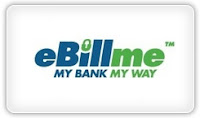 There are a number of things that differentiate an "investment" from a not-so-carefully disguised form of gambling. Understanding these factors can spell the difference between making a payoff and ending up a financial ruin.
There are a number of things that differentiate an "investment" from a not-so-carefully disguised form of gambling. Understanding these factors can spell the difference between making a payoff and ending up a financial ruin.1. Investment is all about making informed assumptions. Gambling, on the other hand, relies heavily on luck. While it is true that luck plays a part in getting an income from one's investment, it should never be the primary factor. This is what makes it tricky this early. No one who will offer you an investment will come to you and say that it has a 50-50 chance of succeeding. Otherwise, you are better off heading to a casino (although I don't think there are games there that offer even a 50-50 chance). Rather, what you will get is a carefully packaged set of assumptions and computations that shows a high probability of getting a high income. What makes it an investment is whether or not you can vouch for the plausibility of these assumptions. Or, as a next best thing, your financial advisor (who is not the one offering you the investment), can vouch for it. Of course, there will be varying degrees and methods, but the bottomline is that the decision to invest was made based on facts, and not chance.
2. Investments offer a reasonable return, while a gamble will promise the moon. So, if you are investing in a highly regulated or very competitive industry, a higher than expected return should be a cause for careful evaluation. Not that it's not possible; it's whether or not the assumptions or methods (as mentioned above) allow for such a return to be achievable.
3. Investments feed on fundamentals, gambling feeds on frenzy. That's why so many who are excited with all these "Ponzi" schemes ended up getting burned. They either knew that there were no underlying reason for such a return on investment, or they couldn't care less.
4. Some investments are really just a step better than a gamble. Let's face it, some investments will have assumptions that will not be any better than a roll of a dice. This is true in such cases as pioneer industries or new technologies. The important thing is to recognize it for what it is.
Hopefully this post can help you in making that very important distinction between investing and gambling. Let me know your views or share what other criteria you may be using.


